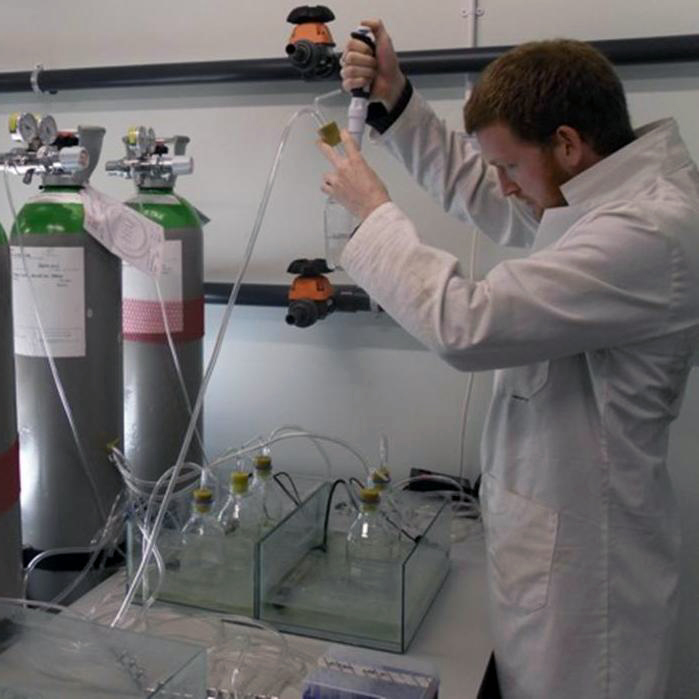Ewan is looking at how ocean acidity levels will affect the evolution and migration of communities of marine organisms
Ewan, from Wickwar in Gloucestershire, graduated from the University of Liverpool in 2010 with a 1st class honours degree in Zoology. He is currently in the third year of his PhD studies in the Institute of Integrative Biology under the supervision of Professor Michael Brockhurst and Dr. Phil Watts.
The world’s oceans are becoming more acidic as a result of climate change. If mankind does not become less dependent on burning fossil fuels the rate of increase in acidity could reach the highest seen in 400,000 years. PhD student, Ewan Minter, is trying to find out how the oceans’ inhabitants will react as their habitats change.
Ocean acidity
Ewan is looking at how ocean acidity levels will affect the evolution and migration of communities of marine organisms. He is using a microorganism found in many locations around the world, called Oxyrrhis marina, as a model organism.
The organism reproduces very quickly, meaning that evolutionary changes stimulated by stress that may take tens or hundreds of years to appear in larger organisms, can be seen within weeks or months.
Acidity levels are rising as atmospheric levels of carbon dioxide increase, leading to more of the gas being dissolved in the oceans. If acidity has a significant impact upon a species’ survival, one might expect its populations to evolve acid resistance or migrate to less acidic waters. It may be, however, that other factors will drive these changes to a much greater degree.
Ewan explains: “I predict that acidity levels will not affect the survival of species like O. marina as much as other factors, such as water temperature. This is because some O. marina populations currently live in quite acidic waters making it unlikely that they would need to migrate away from acid stress.
Evolved differences
“My research will compare acid resistance in populations from regions of various acidity levels to look for any evolved differences. This will allow me to see if there is a spatial pattern between acid resistance and location, which will indicate if acidity is a key stress factor.
“I hope that the model data my project generates can be used by the UK Ocean Acidification Programme (UKOA) to help predict how our oceans will change over the coming decades.”
For more information on the UKOA, please visit: http://www.oceanacidification.org.uk


Great article!